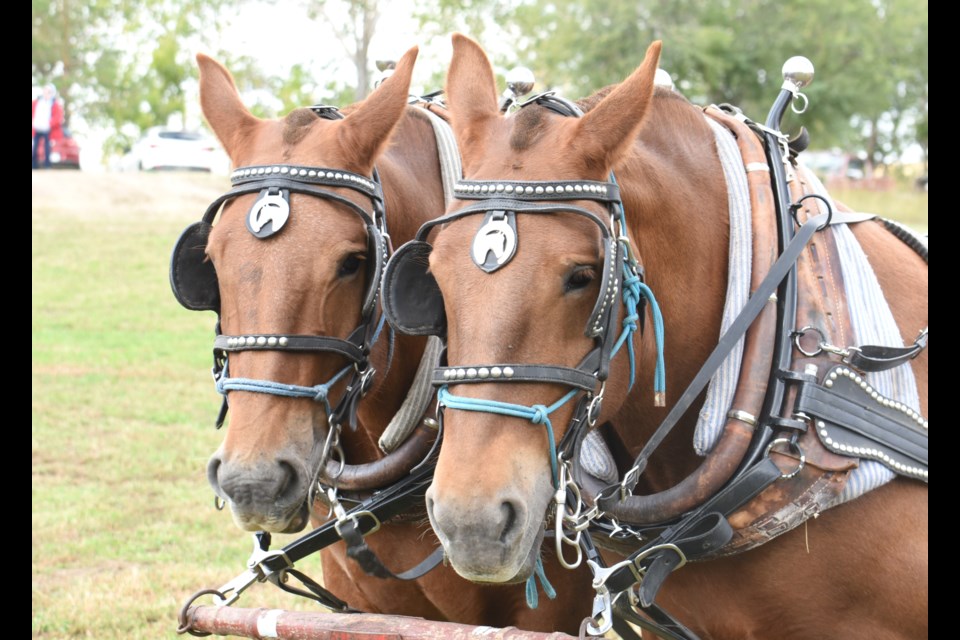MOOSE JAW — Late last month, a farm just south of Caron, Sask., became a hub for equine enthusiasts as a local breeder — Pondside Paddocks owned by Ed Livingston — hosted the annual general meeting for the North American Suffolk Horse Association recently.
“I’ve had Suffolk horses for about six years, and before that, I was a breeder of Canadian horses,” Livingston explained. “The Suffolk horses are a larger draught horse that originates from the Suffolk County in England.”
Suffolk horses are the oldest breed mentioned in stud book records kept in the United Kingdom with roots going back to the middle 1800s. Bred for the plow, these horses feature a wonderful temperament and are stocky and built for hard labour. Their chestnut brown colour is standard throughout the breed and remains consistent.
“People often think they’re a show horse, but they’re specifically bred. They have stocky barrels to them and they’re excellent for hard work,” Livingston added.
To demonstrate the breed’s timelessness, these horses are still used on the farm and Livingston said his team of 20 seeded five acres of oats this year. Another member from Manitoba competed 60 acres of oats this season.
“My favourite job is raking hay with the horses,” he said. “It’s a ground-driven rake, and it works as good as any tractor.”
Suffolk horses are a rare breed horse meaning their numbers are quite low. Livingston said they’re not endangered, however across North America there’s probably an average of 150 foals registered each year — far below the numbers for other horse populations.
“There were Suffolk horses here earlier in the province, but with mechanization and tractors, all horse breeds suffered and the breeds went down,” he said. “It’s mostly been since about the 1970s that there’s been a resurgence… in breeding heavy horses.”
This new trend has been the result of a heritage movement, he explained.
“There’s just a resurgence in people interested in heritage — everything from knitting and quilting to horses and beekeeping,” Livingston added with a smile.
The North American Suffolk Horse Association’s annual meeting was held in Canada for the first time in the past 20 years. For the occasion, Livingston’s farm was transformed into an obstacle course, tents were erected for guests in a grassy meadow, and a field was set aside for plow demonstrations.
Guests attended from all across North America including B.C., Alberta, and Manitoba, and from Texas, Ohio, Michigan, and Montana in the United States.
Pondside Paddocks was chosen largely because Livingston is the only registered breeder currently in Saskatchewan.
“There are a few other teams in Saskatchewan, but I think I’m the only one breeding these horses (here),” he confirmed. This year, his farm delivered four foals, which Livingston said is part of the 50 or so Suffolk horses that Canada contributes to the annual North American total.
“Anybody who’s interested in getting involved in driving and using horses on the farm can reach out to… the Suffolk Horse Association. There are horses available… and it’s hard to find a good broke team — but it’s doable,” Livingston said.
The North American Suffolk Horse Association is independently run and its record keeping does not include records from the Suffolk Horse Society in the United Kingdom. As well, there are a handful of Suffolk punch horses in Australia and South Africa.
To learn more about the North American Suffolk Horse Association, reach out to a member or visit SuffolkPunch.com or visit ‘Pondside Paddocks’ on Facebook. Livingston said Facebook Messenger is one of the best ways to get in touch with him.


.png;w=120;h=80;mode=crop)

